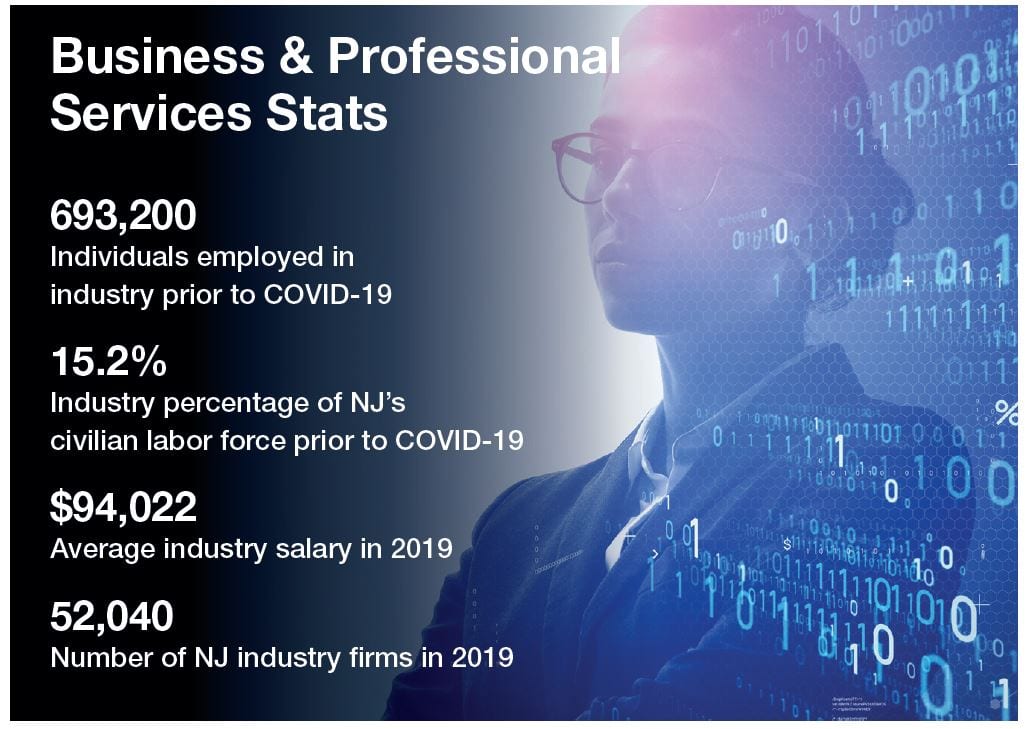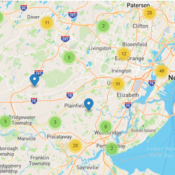Mergers, Acquisitions Are Future of NJ Services Industry
Advancements in technology have eliminated geographic boundaries for many professional & business services. While technology and business systems are evolving rapidly, organizations are having trouble maintaining financial viability. Greater competition and tighter margins are resulting in mergers and acquisitions.
 Trends: The business & professional services industry gained 97,622 jobs (or 16.8% of total industry employment) from 2010 to 2019, with total industry employment increasing to nearly 678,000 jobs in 2019, according to the US Bureau of Labor Statistics (BLS). Prior to COVID-19, the industry employed 693,200 individuals or 15.2% of the state’s civilian labor force, according to the BLS.
Trends: The business & professional services industry gained 97,622 jobs (or 16.8% of total industry employment) from 2010 to 2019, with total industry employment increasing to nearly 678,000 jobs in 2019, according to the US Bureau of Labor Statistics (BLS). Prior to COVID-19, the industry employed 693,200 individuals or 15.2% of the state’s civilian labor force, according to the BLS.
Despite an increase in employment, the number of business & professional services firms decreased from 52,749 in 2010 to 52,040 in 2019. In total, the industry lost 709 firms in a single decade.
Wages: On average, a professional & business services worker in New Jersey earned $94,022 in 2019, an increase from $73,036 in 2010, according to the BLS. Workers in Morris County earned the most, an average $128,345 in 2019, while workers in Cumberland County were paid the least, $34,212. Average annual wages varied greatly by county in 2019. For example, five counties earned six-figure salaries on average, while six, including Cumberland, earned less than $60,000: Cape May ($46,596), Gloucester ($52,370), Ocean ($55,093), Salem ($56,891), and Passaic ($58,898). Cumberland and Cape May counties are the only two New Jersey counties where business & professional services workers earned on average less than $50,000 in 2019.
Innovations: According to Focus NJ’s Future of Work- Industry Series Study, the industry was forced to adopt a rapid digital transformation as a result of the novel coronavirus pandemic. Advancements in technologies are allowing the industry to expand products and services to provide added value to clients. In addition, advancements in software and platforms are making outsourcing for HR, payroll, benefits and time management support simpler than ever.
Skill Sets for the Future: The future of the business & professional services industry lies in working hand in hand with technology as the use of platforms and online conferences increase in popularity. According to the Future of Work – Industry Series Study, skill sets for the future include data analytics, cybersecurity, information technology, digital marketing, content creation, AI platforms, application integration, ubiquitous connectivity and tracking, and accounting and auditing skills. While the adoption of technology may result in low-skill job loss, the jobs that emerge will be for highly skilled professionals.
**This content was originally created for the NJ Business Magazine**





